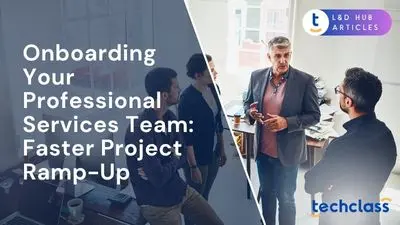
Sales enablement, the practice of equipping sales teams with the right resources, training, and knowledge to sell effectively, is undergoing a dramatic transformation as we head into 2025. Today’s buyers are more empowered and digitally savvy than ever. In fact, B2B buyers now complete up to 68% of their research on a product or service before ever engaging a salesperson. Moreover, by 2025 an estimated 80% of all sales interactions will occur through digital channels. This shift means that sales representatives often meet customers later in the decision process, facing prospects who are already well-informed about options and pricing. Consequently, every touchpoint with a buyer must add exceptional value and relevance to stand out.
To meet these rising expectations, companies worldwide are turning to two powerful strategies: artificial intelligence (AI) and personalization. AI is becoming a must-have in sales enablement, providing real-time insights, automating routine tasks, and delivering knowledge on demand. At the same time, personalization has moved from a marketing buzzword to a sales imperative, tailoring each interaction to a buyer’s specific needs and context. Together, these trends are reshaping how organizations enable their sales teams to connect with customers. This article explores how AI and personalization are driving the top sales enablement trends of 2025, why they matter for business and HR leaders, and how you can prepare your organization to leverage these innovations.
AI is at the forefront of sales enablement trends in 2025, moving beyond hype to real-world impact. In the last couple of years, AI adoption in sales has skyrocketed, rising from 39% to 81% of sales teams using AI in just two years. Gartner analysts predict that by 2025, 75% of B2B sales organizations will augment their sales processes with AI-guided selling. This widespread adoption is driven by AI’s clear benefits in boosting efficiency and effectiveness.
One major role of AI is automation of routine tasks. AI-powered systems can automatically log data, schedule communications, and even draft emails or proposals, freeing up sales reps from administrative drudgery. AI can also analyze CRM data to prioritize leads and remind reps when to follow up, ensuring no opportunities slip through the cracks.
Beyond automation, AI serves as an augmentation tool for salespeople, essentially an intelligent co-pilot. Modern AI tools leverage advanced analytics to provide real-time insights and coaching. They can parse sales calls, emails, and meetings to give reps instant feedback and guidance. AI coaching systems now analyze 100% of sales conversations to identify coaching opportunities and offer personalized tips to each rep. This kind of data-driven coaching was impossible to scale before and can dramatically shorten new hires’ ramp-up time.
Another area where AI shines is in sales forecasting and analytics. AI can crunch vast amounts of data (historical sales figures, market trends, buyer behavior signals) to produce much more accurate predictions. Companies deploying AI-driven forecasting report significantly more accurate results. These predictive insights help sales leaders allocate resources more effectively and coach their teams based on data rather than intuition.
Crucially, AI in sales enablement also means delivering knowledge at the moment of need. Instead of reps hunting through slide decks or wikis, AI can instantly retrieve the exact snippet of information or content piece that a rep requires, whether it’s a pricing detail, a product spec sheet, or an answer to a customer’s technical question. AI assistants can also serve as on-demand knowledge bots, instantly retrieving answers from a well-organized content library. However, these benefits depend on feeding the AI high-quality, up-to-date information, if your content is outdated or scattered, even the best AI system will stumble. Companies are therefore focusing on centralizing and cleaning their sales content repositories so AI tools have a reliable single source of truth.
Despite the learning curve, the payoff can be huge. In one survey, 88% of organizations using AI in sales enablement saw a significant increase in customer satisfaction. By helping reps respond faster and with more relevant information, AI is clearly elevating the sales customer experience and boosting results.
In parallel with AI, personalization has become absolutely critical to successful sales engagements. Buyers have grown accustomed to personalized experiences in their consumer lives, from tailored streaming recommendations to custom product suggestions, and now expect the same level of relevance in B2B interactions. Personalization in sales enablement goes far beyond using a prospect’s name in an email. It means tailoring every touchpoint and piece of content to the individual buyer’s industry, role, pain points, and stage in the journey.
The impact of effective personalization on business outcomes is backed by hard data. According to McKinsey, effective personalization can cut customer acquisition costs in half and lift revenues by 5–15%, and companies that excel at personalization generate 40% more revenue than those who do not. 71% of consumers now expect personalized interactions, and 76% get frustrated if they don’t get them. In the sales context, that means a generic pitch or one-size-fits-all demo is increasingly likely to fall flat. Buyers are far more likely to engage when sales reps provide information that directly addresses their specific needs and challenges.
What does personalization look like in practice for sales enablement? A few examples include:
The goal of these tactics is to make the buyer feel understood and to cut through the noise with relevant engagement. Personalized interactions build trust faster and help move deals forward more efficiently. Businesses leveraging strong personalization in sales have reported up to a 20% improvement in sales performance metrics like win rates and deal velocity. Conversely, lack of personalization can be detrimental, many buyers will disengage if the content they receive isn’t pertinent to their situation. In today’s environment, taking a generic approach is not just less effective, it may actively push prospects away.
AI and personalization are powerful on their own, but together they truly redefine what’s possible in sales enablement. AI is essentially the engine that drives personalization at scale, a fusion often termed “hyper-personalization.” In essence, hyper-personalization means using data, analytics, and AI to analyze every buyer’s behavior and preferences, then automatically deliver the optimal content or action for that individual. In other words, AI crunches vast datasets about a prospect’s interactions and attributes, and automation delivers the right content or recommendation at exactly the right time for that specific person.
In 2025’s sales landscape, generic outreach is effectively dead. Leading sales organizations use AI-driven analysis to craft messages and content that feel hand-picked for each recipient. For example, if a prospect’s behavior suggests interest in a particular product feature, an AI assistant could prompt the rep to share a relevant success story. Some systems even automate outreach, sending a follow-up text or email with tailored content right after a sales call, resulting in significantly higher engagement (reports of up to 40% more engagement).
AI can also power personalization in real time during buyer interactions. In a live chat or call, an AI tool might suggest talking points or content that are most likely to resonate with that specific buyer, based on similar customer data. This support allows even newer reps to deliver advice that feels highly consultative, because the AI is tapping into a wealth of insights on their behalf.
Ultimately, those who combine AI and personalization effectively are seeing sales enablement evolve into more of a science. Every interaction can be optimized based on data-driven insights, and each buyer gets a unique journey that maximizes their likelihood of converting. This is a dramatic leap from the traditional sales approach of static scripts and gut-feel targeting. It represents a future where sales enablement delivers “the right knowledge, at the right time, in the right context” for both sellers and buyers, a formula for higher win rates and stronger customer relationships.
Adopting AI and personalization in sales enablement is as much about people and process as it is about technology. Business leaders, including HR and sales enablement managers, should approach these trends with a strategy for change management and skill development. Here are key considerations for preparing your team and organization:
By focusing on these areas, HR and business leaders can foster an environment where AI and personalization initiatives thrive. This change should be viewed as an ongoing journey rather than a one-time project. Continuous learning and adaptation will be necessary, since both AI capabilities and buyer expectations will keep evolving.
In 2025 and beyond, sales enablement success will belong to organizations that effectively harness AI and personalization to empower their teams and delight their customers. An AI-enhanced, personalized approach to sales allows companies to be more responsive, insightful, and customer-centric, which in turn drives better sales outcomes.
For HR professionals and enterprise leaders, the challenge is to guide this transformation thoughtfully. It means equipping your sales force with the right tools and training, breaking down silos between departments, and creating a culture that embraces data and innovation. The companies that get this right are already seeing results: faster sales cycles, higher win rates, improved customer satisfaction, and stronger revenue growth.
AI and personalization together form a powerful formula for sales enablement success. By delivering the right message or insight to the right person at the right time, your organization can build trust with buyers and empower sellers to perform at their best. Embracing AI and personalization is quickly becoming a necessity to stay competitive in the marketplace.
Adopting AI-driven personalization requires more than just a strategic shift: it requires a modern infrastructure that centralizes knowledge and delivers it at the moment of need. As buyers become more digitally savvy, the primary challenge for sales leaders is ensuring that every representative has instant access to relevant insights without getting bogged down by administrative tasks or outdated content repositories.
TechClass helps bridge this gap by providing a unified platform where sales playbooks and product updates become interactive, searchable assets. By utilizing our AI Content Builder and integrated Training Library, you can rapidly upskill your team on data literacy and AI-guided selling. This approach ensures your sales force is not only equipped with the latest technology but also the specialized knowledge required to provide the high-value, personalized experiences that 2025 buyers demand.
AI automates routine tasks, provides real-time insights, enhances coaching, and delivers on-demand knowledge to boost sales effectiveness.
Personalization helps tailor interactions and content to individual buyers' needs, increasing engagement, trust, and conversion rates.
Hyper-personalization uses AI to analyze buyer data and deliver highly tailored content and recommendations at scale, improving sales outcomes.
Companies should invest in training, centralize content, start with pilot programs, and ensure ethical use of customer data.
Combining these strategies creates more relevant, timely interactions that increase engagement, shorten sales cycles, and improve win rates.

.webp)
